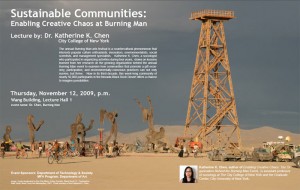One of yesterday’s WSJ front page articles (“Volunteers Log Off as Wikipedia Ages“) examined the increasing turn-over among volunteers for the on-line encyclopedia Wikipedia. The article discusses the difficulties of monitoring the content contributed by users. Both the comments and article suggest that size, age, increasing rules, and a lack of accountability among anonymous users make Wikipedia a less attractive venue to potential contributors and discourage the continued participation of current contributors.
After mulling over this news article and other research on participatory groups, I would also suggest other possible reasons for a decline in Wikipedia’s participation, as well as a different perspective on the usefulness of Wikipedia:
(1) Most people don’t have experience with participatory practices and need to learn to flex those muscles, which results in inevitable bumps and attrition among those who privilege efficiency over collective discussion.
(2) More problematically, outside of the academy,* people don’t agree on what constitutes a fact versus an opinion, much less understand the research process. I would speculate that a heavily politicized education (i.e., creationism/intelligent design taught alongside evolution as a theory) or an insufficient education make it more difficult for people to make distinctions between facts and opinions.
(3) Since Wikipedia began 8 years ago, it’s possible that declining participation among old-timers may be inevitable due to changing interests and competing responsibilities, such as raising a family. In addition, the intensification of work as employers demand longer hours and/or downsize staff reduce the amount of free time that both new and longtime volunteers can offer.
So, what might Wikipedia really tell us? Rather than thinking of Wikipedia as only a factual, consensus-based encyclopedia, Wikipedia might offer us insight into phenomena over which consensus has not yet been established, as well as the different stakeholders who get involved in the construction and dissemination of knowledge.
* Of course, academics have their own disagreements about what constitutes proper research.

